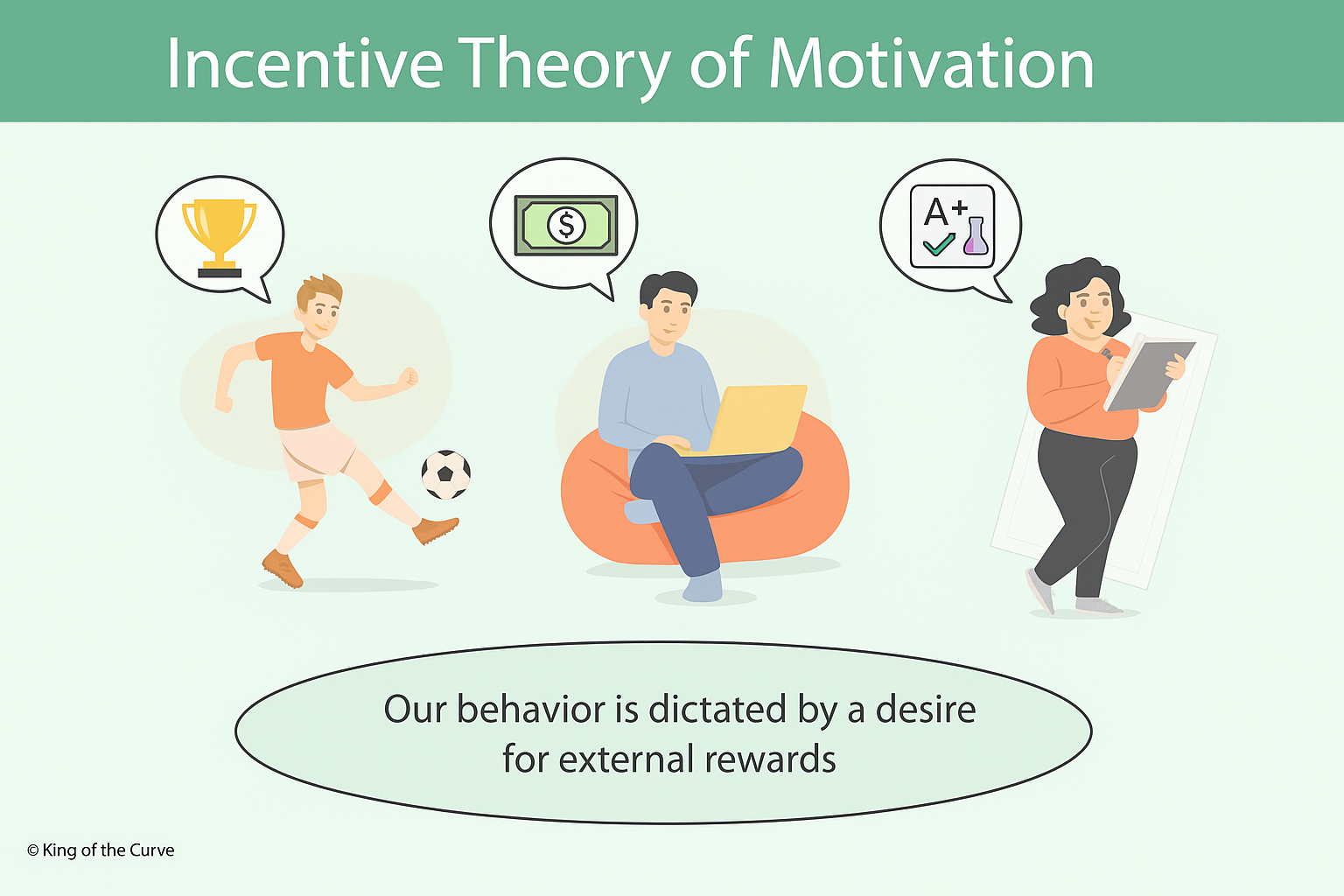🎯 Incentive Theory of Motivation: What Drives Us?
Why do we work late? Train harder? Study longer?
According to the Incentive Theory of Motivation, our behavior is largely driven by external rewards. Unlike intrinsic theories that emphasize internal satisfaction or curiosity, this theory posits that people act in response to tangible reinforcers — like money, praise, grades, or trophies.
It’s not just a psychology buzzword — this concept is highly testable on the MCAT and helps explain everything from addiction to academic performance.
🧠 Core Principle
“Our behavior is dictated by a desire for external rewards.”
Whether it’s a paycheck, praise, or prizes, this theory suggests that we’re goal-driven by what we gain — not necessarily by what we enjoy.
🔬 MCAT Relevance: Psychology + Behavior
In MCAT terms, this falls under the category of motivation theories (Foundational Concept 7). Here’s how it compares:
| Theory | What Drives You | Example |
|---|---|---|
| Incentive Theory | External reward | Studying for an A+, training to win a trophy |
| Drive-Reduction Theory | Reducing physiological discomfort | Drinking water when thirsty |
| Arousal Theory | Maintaining optimal stimulation level | Skydiving to feel adrenaline |
| Maslow’s Hierarchy | Meeting hierarchical needs | Seeking safety, love, esteem |
💥 Common MCAT Questions Include:
Identifying extrinsic vs. intrinsic motivation in a passage
Applying incentive theory to addiction, school performance, or workplace behavior
Contrasting multiple theories of motivation in a behavioral setup
Interpreting reward pathway activation in brain structures (e.g., dopamine release in the nucleus accumbens)
📊 Quick Study Table
| Reward Type | MCAT Category | Example |
|---|---|---|
| Money | Incentive Motivation | Working overtime |
| Grades | Extrinsic Motivation | Studying to earn an A |
| Praise | Social Reward | Performing to get parental approval |
| Trophies | Competitive Reinforcement | Practicing for a championship |
🧠 KOTC Tip: How to Remember It
Incentive = Incoming reward.
If you’re doing it for something, it’s likely incentive-driven.
Use this when analyzing passage questions, especially when evaluating behavioral triggers and learned responses.
🚀 Master Psych/Soc with KOTC
We make MCAT psychology and sociology effortless and rewarding through:
🎯 Custom science visuals like this one
🧠 Adaptive spaced-repetition Q-bank
💬 Community multiplayer + leaderboard tracking
📊 Daily QOTDs with smart topic tagging
📲 Get your free account today:
kingofthecurve.org/free-lifetime
Frequently Asked Questions (FAQs)
-
Aim for 4-6 focused hours, ensuring you incorporate breaks to avoid burnout.
-
Practice mindfulness techniques, take practice exams under realistic conditions, and maintain a balanced lifestyle.
-
Set short-term goals, seek support from mentors, and reward yourself for small achievements.
-
Regular exercise improves focus, reduces stress, and enhances overall mental clarity.
-
KOTC offers personalized learning tools, gamification features, and adaptive question banks to help students stay on track without burnout.


